Benegal Narasing Rau – The Forgotten Architect Of Indian Constitution
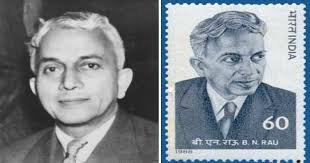

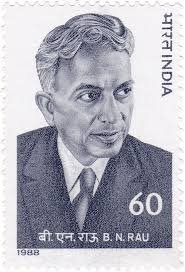
#BenegalNarasingRau
Dr Rajendra Prasad, the President of the Constituent Assembly, said Rau “was the person who visualised the plan and laid the foundation” of the Indian Constitution.
Who was this Rau?
He is “The forgotten architect of Indian Constitution”
A tribute to Kannadiga who incidentally was the most important person in drafting the constitution.
B.N.Rau (26 February 1887 – 30 November 1953) was born at Mangalore.
The Indian Constitution was drafted by a core committee of seven experts headed by Dr BR Ambedkar.
Ambedkar was chosen the head because he had already served in various sub-committees, but before that he faced severe opposition from Abul Kalam and Nehru, but it was Rajendra Prasad who inducted him opposing the then President of Congress.
There is much talk about who really was the biggest brain behind making the Constitution as knowledgeable people believe Ambedkar couldn’t have been the guy. Oldies with wisdom, who knew the India of those days, have said univocally that BN Rau who was appointed as the adviser to the Constituent Assembly was the expert who did the most job and worked out the democratic framework of the Constitution. He singlehandedly prepared the initial draft by February 1948, to be debated, revised and finally adopted by the team on November 26, 1949. The Drafting Committee, under the chairmanship of Ambedkar, declared that the ‘Draft Constitution’ was being scrutinised thoroughly by adviser BN Rau for making it one of the world’s best Constitutions.
Rau was not a member of the Constitutional Assembly but was the most important expert who did the primary thinking and writing. He has been religiously ignored by frontline politicians who never gave him his due space in history. Rau is the principal framer of the Indian Constitution; others only did the cosmetic jobs here and there. like they have forgotten VP Menon, Secretary of States, who drafted the ‘instrument of accession’ to force the 564 Princely States to merge with the Union of India, Rau is not remembered by the political bosses of today. Most of them do not even know who he is by name.
As Constitutional Advisor of the Constituent Assembly, Rau not only oversaw the preparation of the draft electoral roll but also laid the groundwork for how members of the Constituent Assembly would draft India’s Constitution.
When he took over the position of Constitutional Advisor and led the establishment of the CAS in July 1946, he laid down firm conditions before the Constituent Assembly.
“The whole organisation is non-political and non-party in character. Its services are equally available to every member, irrespective of party and creed,” he wrote.
“Rau was the leading authority in guiding the process of making the universal franchise from a constitutional perspective…Rau’s sense of justice and his pursuit of pragmatic, satisfying solutions under very difficult circumstances were the same qualities that he demonstrated when he found solutions to the problems of implementing the franchise,” writes Ornit Shani, a scholar of Indian politics and modern history, in her seminal book “How India Became Democratic”.
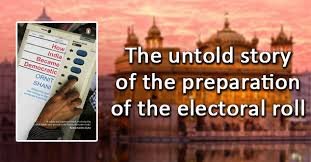
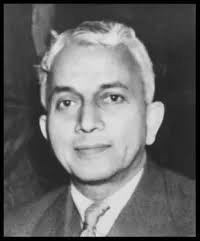
Before the Constituent Assembly prepared its first draft of the Constitution in October 1947, he wrote Constitutional Precedents—an in-depth analysis “comparing the basic elements of the constitutions” of different nation states.
He also has the unique distinction of participating in the drafting a new Constitution for the then Union of Burma (Myanmar). For Constituent Assembly members in India, he took up the responsibility of preparing all the necessary background materials.
Overseeing the drafting of the electoral roll since its inception in 1946 till 1948, Rau found solutions to some the most difficult logistical problems that arose from registering voters, particularly the refugees entering India following Partition who weren’t technically ‘citizens’ and whose residential status was undetermined.
A firm believer of universal adult franchise, Rau believed that no Indian voter should be left behind in the process.
In a letter he wrote to Rajendra Prasad on May 12, 1948, he said: “The electoral rolls now under preparation are merely the preliminary rolls. Before a general election is held on the basis of these new rolls, they will have to be…published and revised under the electoral law. There should, therefore, be no objection to ‘refugees’ being registered in the rolls for their province on a mere declaration by them of their intention to reside permanently in the town or village concerned.”
He served as India’s representative in the United Nations Security Council from 1950 to 1952 before getting elected as a judge in the International Court of Justice in The Hague—the first Indian to earn that position.
Unfortunately, he passed away in November 30th, 1953 in Zurich, Switzerland.
Sir Benegal Narsing Rau, served as an Indian Civil Service officer, a jurist, a diplomat and a statesman of great repute.
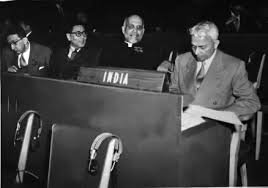
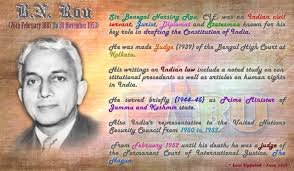
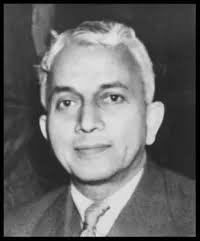
Rau does not live in the hearts of Indians as the maker of the great Constitution of India. Ambedkar, who was placed as the team leader by Shrewd Politician Nehru is projected as the supreme brain who gave the Constitution. (Incidentally, Dr Ambedkar himself never boasted about his position, all this kind of political gimmicks only happened after his death)
The Constituent Assembly’s resolution in setting up the Drafting Committee, under the chairmanship of B R Ambedkar, declared that it was being set up to “scrutinise the draft of the text of the Constitution prepared by the Constitutional Adviser (B N Rau) giving effect to the decisions taken already in the Assembly,” which proves the fact that B N Rau was solely resonsible for the draft Constitution.
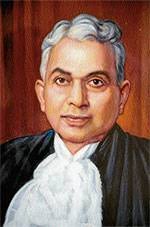
Another interesting aspect about Rau is that he offered his services free of cost. The President of the Constituent Assembly Dr Rajendra Prasad, before signing the Constitution on November 26, 1949, thanked Rau for having “worked honorarily, assisting the Assembly not only with his knowledge and erudition but also enabled the other members to perform their duties with thoroughness and intelligence by supplying them with the material on which they could work,” reads a report on Rau.
#VandeMataram
DISCLAIMER: The author is solely responsible for the views expressed in this article. The author carries the responsibility for citing and/or licensing of images utilized within the text.
